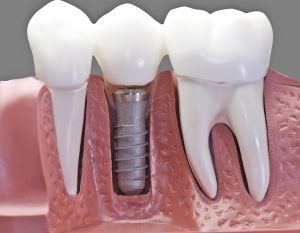Introduction
Transitioning to life with dentures can be a significant adjustment for many individuals. Whether you have recently gotten dentures or are considering getting them, it is important to understand the challenges that may arise during this transition period. This blog post aims to provide you with helpful tips and tricks to make the adjustment process smoother and more comfortable.
Understanding the Transition Period
Adjusting to life with dentures can be a challenging process, but with the right tips and tricks, you can make the transition smoother. It’s important to understand that the initial period of wearing dentures may feel uncomfortable and unfamiliar. However, with time and practice, you will adapt to your new dental appliance.
Follow Proper Denture Care
Maintaining good oral hygiene is crucial when wearing dentures. Clean your dentures daily using a soft-bristle toothbrush and mild denture cleaner. Avoid using abrasive materials or toothpaste, as they can damage the dentures. Additionally, remove your dentures at night and soak them in a denture solution to keep them clean and prevent bacterial growth.
Start with Soft Foods
During the initial days of wearing dentures, it’s recommended to stick to soft foods that are easier to chew. Gradually introduce harder foods as you become more comfortable with your dentures. Chewing slowly and using both sides of your mouth can help distribute the pressure evenly and prevent discomfort.
Practice Speaking
Speaking with dentures may feel different at first, but with practice, you can regain your natural speech patterns. Start by reading aloud or practicing common phrases to improve your pronunciation. If you experience difficulty with certain sounds, consult your dentist for guidance.
Use Denture Adhesives

If you find that your dentures are not staying securely in place, consider using denture adhesives. These products can provide additional stability and prevent slippage. However, it’s important to follow the instructions carefully and not rely solely on adhesives if your dentures do not fit properly. Consult your dentist for adjustments if needed.
Attend Regular Dental Check-ups
Regular dental check-ups are essential to ensure your dentures fit properly and your oral health is maintained. Your dentist will examine your dentures, make any necessary adjustments, and check for any signs of oral health issues. Don’t hesitate to discuss any concerns or discomfort you may be experiencing during these appointments.
Summary
Adjusting to life with dentures can be a journey, but with the right knowledge and techniques, it can become a seamless part of your daily routine. This blog post will cover various aspects of denture adjustment, including tips for eating, speaking, and maintaining oral hygiene. Additionally, we will discuss common challenges faced by denture wearers and provide practical solutions to ove browse around this site rcome them. By implementing these tips and tricks, you can ensure a smooth transition to life with dentures and regain your confidence in no time.
- Q: How long does it take to adjust to wearing dentures?
- A: The adjustment period varies for each individual, but it typically takes a few weeks to get used to wearing dentures.
- Q: Are there any tips for eating with dentures?
- A: Start with soft foods and cut them into small pieces. Chew slowly and evenly on both sides of your mouth. Avoid sticky or hard foods that may dislodge your dentures.
- Q: How should I clean my dentures?
- A: Use a soft-bristle toothbrush or denture brush to clean your dentures daily. Avoid using regular toothpaste as it can be too abrasive. Instead, use a denture cleaner or mild soap and water.
- Q: Can I sleep with my dentures in?
- A: It is generally recommended to remove your dentures while sleeping to give your gums a chance to rest. However, your dentist may advise you to wear them at night during the initial adjustment period.
- Q: How often should I visit my dentist after getting dentures?
- A: Regular dental check-ups are important even with dentures. Your dentist will recommend how often you should come in for adjustments, cleanings, and oral exams.
- Q: What should I do if my dentures become loose?
- A: If your dentures feel loose, visit your dentist for an adjustment. Do not attempt to adjust them yourself as it may cause damage.

Welcome to my website! My name is Patrick Sholl, and I am a dedicated and passionate dental laboratory technician with years of experience in the field. I am thrilled to share my knowledge and expertise with you through this platform.


